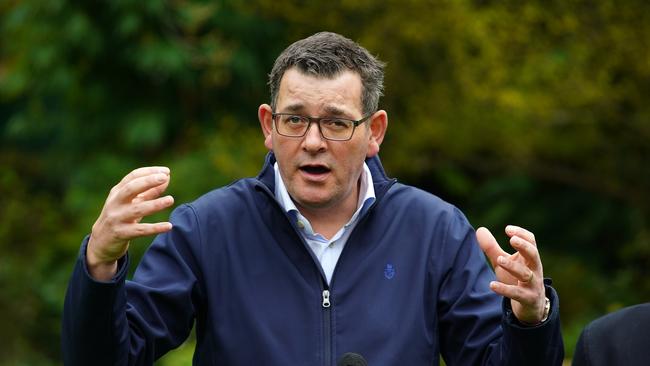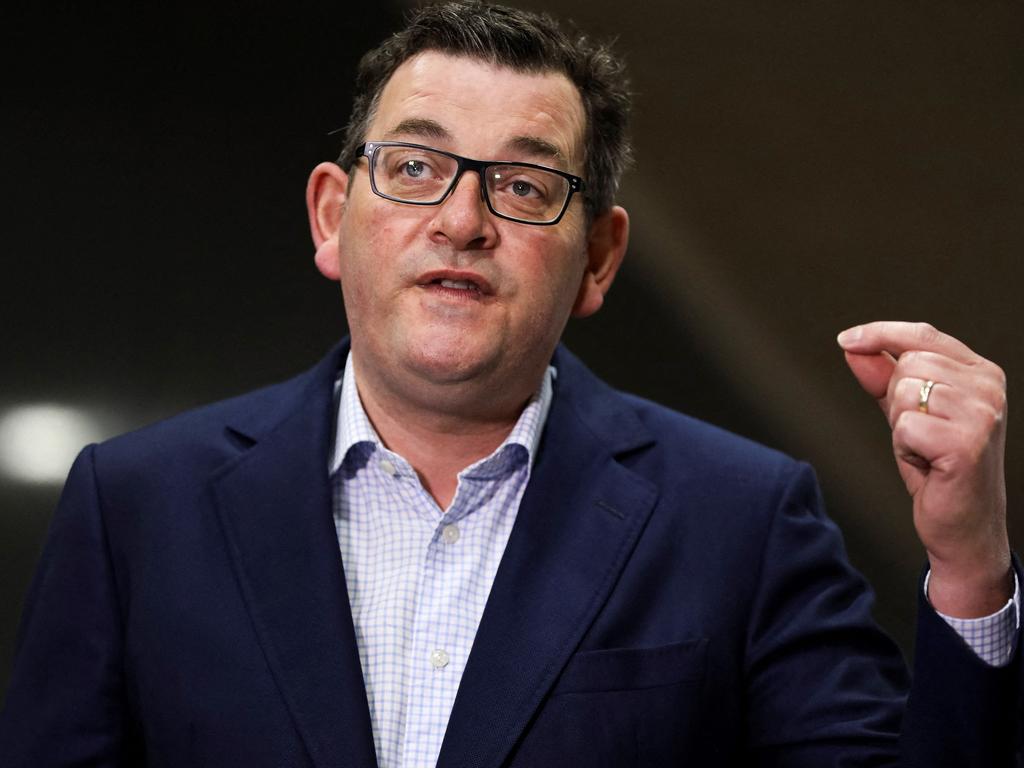Consultants stand by original Commonwealth Games figures, despite blowout
Ernst and Young partners refused to tell a federal Senate inquiry say how much they were paid to design the business case for the 2026 games.

Victoria’s reputation as a key global sporting capital remains intact despite a shock call to cancel the 2026 Commonwealth Games and plans to host it across regional areas were noble, former Victorian sports minister Martin Pakula says.
After he retired from politics in June last year, Mr Pakula agreed to give evidence to a Senate inquiry into the state’s decision to scrap the event — which was to be held across five regional hubs — over claims costs to run it increased from $2.6bn to up to $7bn.
“What I would say about Victoria’s global reputation... it has always been and in my view remains very strong,” he said.
But he agreed he was “not expecting” the games to be cancelled.
Mr Pakula said he was confident with the initial $2.6bn costing of the event, based on the business case developed by the Department of Jobs, Precincts and Regions and big four consulting firm Ernst and Young.
Former coalition federal sports minister Richard Colbeck, who had discussed the event with Mr Pakula in February last year, said he was surprised the state government never asked the former Morrison government for funding support amid the massive cost blowout.
That is despite a business case counting on the federal government to tip in more than $200m for the event.
“Why did you not just ask for support?” Mr Colbeck said.
Mr Pakula said he did not make the request for cash during a February 2022 conversation because the federal government was close to going into caretaker mode before a federal election. However, the 2022 election was not announced until April.
“We were proceeding with that process whether or not we had commonwealth support committed at that time. What I did not suggest was that I would never come back and ask,” he said.
Mr Pakula said it was a “worthy and noble project” to host the games across five regional sites.
It’s been reported a request for funding was made to the Albanese government this year, but a deal was never reached and cash never allocated to the games in the federal budget.
Earlier, the committee heard from event industry veteran Simon Thewlis who said it was “astonishing” key state government games organisers “had little to no real operational experience on major events.”
“In contrast, the Melbourne 2006 Commonwealth Games had a CEO who had a vast amount of major event experience. He brought in many key people who’d successfully delivered the Sydney Olympics,” he said.
“It was a very strong team so not a surprise that Melbourne 2006 was viewed as the best Commonwealth Games up to that point. They also ran to budget.”
Gold Coast city council mayor Tom Tate and Perth City Council mayor Basil Zempalis both told the committee they believed they could host the games, but needed the support of their state governments.
Earlier in the hearing, Ernst and Young partners Dean Yates and Leigh Walker told the committee they stood by their original business case for the 2026 Commonwealth Games, even though it ultimately blew out by billions of dollars.
Nationals senator Bridget McKenzie asked Mr Yates if he was confident the assessment they contributed to was “accurate” and “robust”.
“We were very comfortable with the accuracy of the estimate,” he said.
EY was not involved in the second business case which estimated the cost to host the games across five different regional locations had increased to between $6bn and $7bn, that premier Daniel Andrews ultimately used as the key reason for cancelling it.
Mr Yates and Ms Walker declined to outline how much they were paid by the state government to contribute to the original business case.
“(That is an) appalling disrespect to this committee and tax payers,” Senator McKenzie said.
Senator Sarah Henderson labelled Ms Walker’s repeated refusals to answer questions about why up to $250m in federal funding was included in the business case but never appeared due to confidentiality as a “cop out” and “rubbish”.
Commonwealth Games Chief Craig Phillips chief told the committee he was “disappointed” and “let down” by the decision to pull out of the games, and that he was hopeful another Australian city would host the games instead.








To join the conversation, please log in. Don't have an account? Register
Join the conversation, you are commenting as Logout